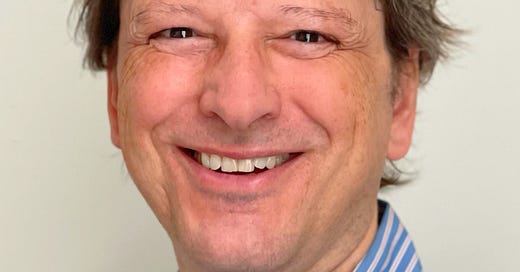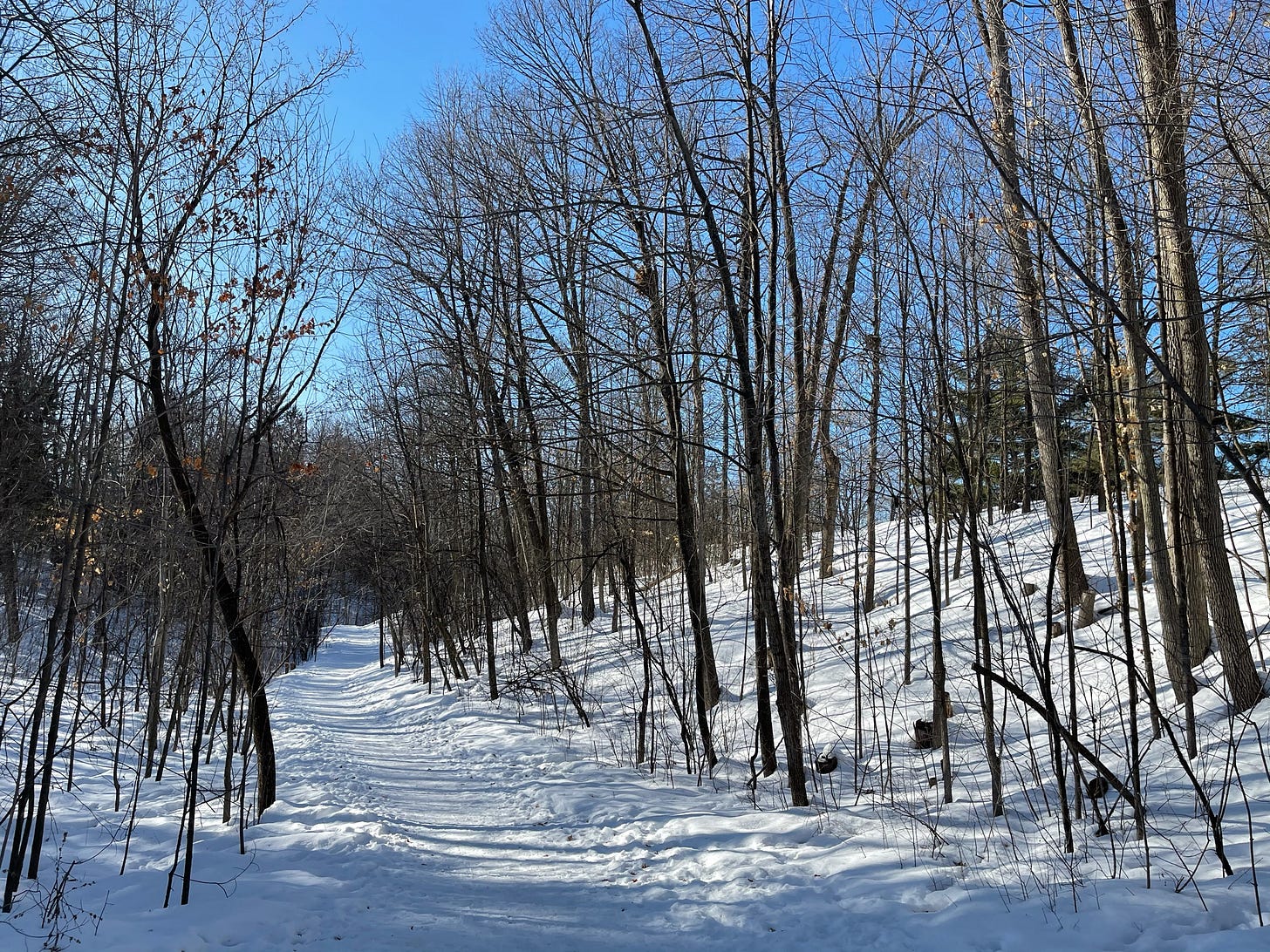Hi, I am Alexander Verbeek. Some of you may have been following me on Twitter at @alex_verbeek or on one of my other accounts: @planetary_security and @artforourplanet. Others may know me via my public speaking on environmental issues or television interviews. For more than a decade, I have enjoyed the interaction with my followers on Twitter and I now look forward to creating an additional platform for stories that are longer than a tweet but shorter than an entire article. A Substack newsletter bridges that gap. It is also a more direct way of staying in touch with you than via articles in magazines.
It is mid-March; when I look through my window, I still see about half a meter of snow. It is slowly melting; the end of my first winter in Ottawa comes near. The cold days seemed to continue forever from my Dutch perspective, although I understand that this is a mild winter by any Canadian standard. It makes this a perfect day to set up my substack account.
What to expect?
For a newsletter named 'The Planet,' you may expect me to write about some of the most significant challenges: climate change, biodiversity loss, water, food, energy, and related problems that we have to face on this rapidly changing planet. There is a lot of confusion about these issues, and part of that confusion is fabricated by those who prefer to keep us ignorant of the existential threats that we should urgently solve.
I will update you on the news and write about the background stories, the available solutions, and why politicians (whatever their political background) don't always choose the most logical path out of this mess. When you lose hope, I will tell you that it is not too late to take meaningful action; we can still avoid the worst-case scenarios. But when you forget about the urgency, I will share stories to remind you that we have no time to lose. The challenges of our time are very diverse but are often more connected than you would have expected. I will share a wide-angle view, and we will follow the connections from one issue to the other.
I will share positive stories about local initiatives, showing what you can do, and talk about technological innovation. Still, we won't get anywhere without significantly raising the ambition at the national and international level. We live in an exciting time of opportunities; building back better, the U.S. is back on board for climate action, and the critical COP26 will take place in Glasgow in November.
And what else?
These threats and opportunities are what motivated me to start this newsletter. I have worked most of my life on environmental and security issues, and I have seen how these have become increasingly intertwined into planetary security challenges.
But if we only look at our planet through the lens of climate change and the loss of nature, we miss an essential part of the story. We often admire anything fragile; we see its beauty and want to protect it. It is also a way of looking at our planet: delicate, beautiful, and in need of protection. I have increasingly changed my focus from the threats to our world to what is at stake. Nowadays, I focus more on the beauty of wildlife, forests, or oceans in my public speaking. Remembering what we risk losing motivates us to preserve all this for the next generation.
I mentioned the threats and solutions, mixed with reminders of our planet's beauty. Still, that is not enough to tell the whole story. The stories of our times on this planet will mostly be about us. We live in the Anthropocene, the new geologic epoch that is all about our impact on this planet. Therefore I will also focus on us. Not just the burning of fossil fuels, but about all kinds of aspects that are part of the story of who we are at this point in history. My writing about history, archeology, travel, science, or art will often relate to the core planetary challenges. I share, for instance, examples of art about climate change in a separate Twitter account called @artforourplanet.
Our journey
And that is where you can play a role. For those who come on board, we are at the beginning of a journey. I will count on guidance from you. In the more than ten years that I have been active on Twitter, I have always enjoyed the many suggestions that followers have sent me. And I have tried to find and create the most appreciated content.
Over the years, being active on Twitter changed from sending information to being part of a vibrant community. Many of my tweets are the result of suggestions by Twitter friends that feel part of this community. This approach has changed my tweets significantly. Every January, I take some time to make a list of issues that you care about, a process that involves a lot of direct communication with hundreds of followers. Based on your reactions, there is now more focus on positive news, innovation, solutions, and hope. And increasingly, there is more room for all kinds of other topics. Some will be close to our changing planet's theme, like nature, resources, biodiversity, or pollution. Other posts will have no relation at all to the changing world but are just fascinating to share.
If Twitter is any guidance on where this will go, it may get more personal with travel experiences, photography, or memories. Again, we are on this journey together. You can hit the brake, steer me in other directions, or encourage me to dive deeper into a specific subject. I am used to that, and I will search for a middle ground between different requests.
I plan to write regularly, and I will make sure that there will always be some content freely available in front of the paywall, but there is also the opportunity for paid subscriptions. I'm trying to find a balance here: on the one hand, I don't think anyone should write for free, but on the other hand, I don't want to deny access to those that can't subscribe. The paid subscription will give exclusive access to everything I publish. It will also provide the option to comment; to access the discussions where you can contribute; in short, that is where to find the community.
I look forward to this journey and count on your support. While writing these first paragraphs, I already received some first suggestions and supportive comments. Thanks, I do appreciate that. You can also contact me via direct mail on Twitter at @alex_verbeek, on Instagram via @alexanderverbeek, or through my website alexverbeek.com. And you can leave a comment by using this button:
I am looking forward to starting this journey together and hope to see you all regularly on Substack.
And to end this first post, I have a request: If you made it this far, I would appreciate it if you could promote this initiative by sharing it on social media and subscribing to this newsletter.







In my home city of Hobart we saw many positive effects during lockdown. The pace of life slowed and people everywhere reached out and got to know and support their neighbours in increasingly supportive ways compared to the busier, more anonymous pre-covid days.
Being an urban organic vegetable grower, during lockdown, when the restaurants that I normally supplied had closed I pivoted to supplying neighbouring families with produce. To the many who were interested I passed out vegetable seeds of quick cropping greens like mustards, rocquette and mizuna. It felt like going back in time to a simpler world. Of course it may take more than a season’s work to establish a truly pumping vegetable patch but the simple act of getting up close and personal with the natural world in this meaningful way is fantastic therapy for body, mind AND planet when we need it most.
In the end the virus was well under control here within months but hopefully many of the new crop of gardeners everywhere have persisted with their hobby and are enjoying the extra food resilience that even a small salad bed can offer.
Thanks for extending the conversations Alexander. Your contributions are always uplifting and thought provoking.